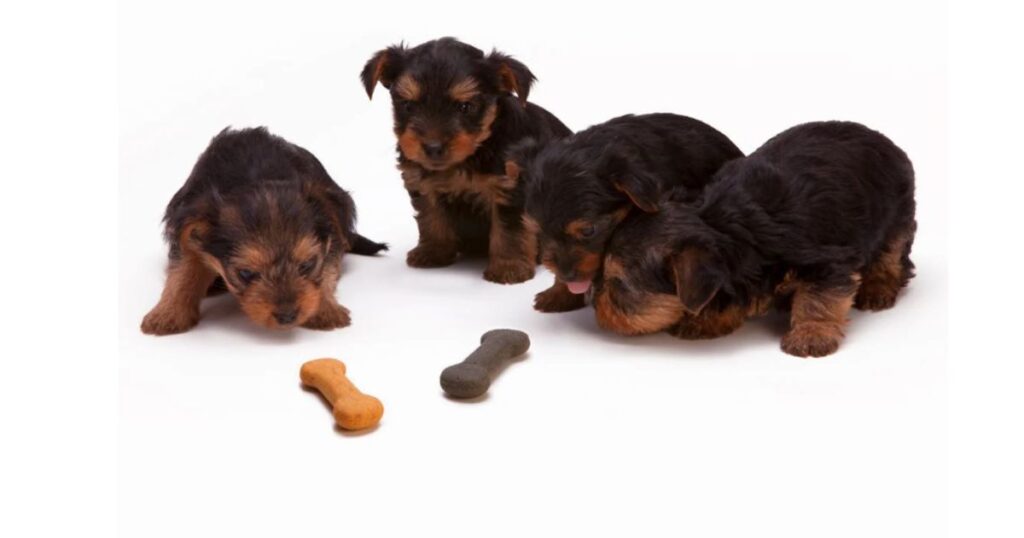As an Amazon Associate, I earn from qualifying purchases
How Long After Last Vaccination Can Puppies Explore Safely?: A Puppy home is an exciting time for anyone, with lots of cuddles and bundles of playfulness. But it also brings a major responsibility—to keep your new pet puppy safe and healthy with vaccines. One of the most common questions we get from clients with a new puppy, is when can my little bundle start exploring out in the world?
We will also go over points regarding the vaccination process and when it is safe for puppies to be on time.

Vaccinations Are Key to Puppy Health
For puppies, vaccinations are extremely important in keeping pups healthy and protecting them from numerous life-threatening diseases.
For puppies, their vaccination process starts from six to eight weeks and will last until they are 16 weeks old. This group of shots will protect them against major canine diseases such as parvovirus, distemper, and rabies.
Why Vaccinations Matter:
Stop the Spread of Disease: Vaccines help protect against illnesses that are dangerous or deadly. Parvovirus and distemper diseases are common in many places, and they spread easily.
Immunity Starts Now: Puppies do gain some immunity from their mother but it starts very slowly and is all gone by a couple of weeks old. Vaccinations create their natural defenses to fight against the dangers of unique diseases.
Supporting Public Health: Attending to canine diseases that could be passed on back to people (such as rabies). This is important to protect the whole community, and so you need a critical mass of adults vaccinated.
Lower cost of Health Management: Disease prevention via vaccination is much cheaper than treatment post-disease.
Vaccination Schedule: Puppies need more than one dose of some vaccines, given 3-4 weeks apart. Here’s a general guideline:
6-8 weeks: DHPP (Distemper, Hepatitis, Parainfluenza, Parvovirus)
10-12 weeks DHPP Second dose
14-16 weeks: Last DHPP and Rabies Shot.
Following on from this primary course of three vaccines, boosters should be given at least yearly to maintain immunity.
Get the right vaccination: It is very important to have your puppies vaccinated as per the vet’s recommended schedule. Also remember, to keep a record of when your puppy was vaccinated and follow-up information that the vet will give you at the time of vaccination.
Why Wait After Vaccinations?
Waiting after vaccinations before allowing puppies to explore freely in public places or interact with other animals is crucial for several reasons:
Development of Immunity: Vaccines take time to stimulate the immune system to build protective antibodies against specific diseases. Typically, immunity develops fully about two weeks after the final dose of the vaccination series.
Incomplete Vaccination Series: Puppies receive several rounds of vaccinations in their first few months. Each round is designed to build upon the previous one to create a comprehensive immune defense. Exposure to potential pathogens before completing the vaccination series could put a puppy at risk of infection because their immune system isn’t fully equipped to handle them yet.
Maturation: Vaccinations involve introducing antigens (mild or inactivated forms of viruses or bacteria) that trigger the immune system to respond. This maturation phase is crucial because it trains the immune system to recognize and combat real pathogens if the animal is exposed in the future.
Preventing Disease Spread: Young puppies are more susceptible to infectious diseases, and many of these can be severe or even fatal. By waiting the recommended period after vaccinations, you help prevent the spread of these diseases to other vulnerable animals in the community.
The Puppy Vaccine Schedule
How Long After Last Vaccination Can Puppies Explore Safely?
Puppies have a set vaccine schedule. Most pups get shots at 8, 12, and 16 weeks old. But your vet will tell you the best plan for your furry friend.
| Age | Vaccine |
|---|---|
| 6-8 weeks | First vaccine – often covers distemper, parainfluenza |
| 10-12 weeks | Booster shot – adds protection against hepatitis, leptospirosis |
| 14-16 weeks | Last puppy shot – includes rabies vaccine |
When can puppies go outside after vaccinations?
The majority of puppies at two weeks past their first vaccine. This perpetual succession of vaccinations should by and large stop when the pup is 16 weeks old, as this period permits their immune protection to impart them full competent security from a scope of revolting sicknesses.
However, please consult with your vet to get tailored advice on the health of your puppy and conditions in your region. They will be able to give you personalized recommendations depending on the vaccine protocol of your pup and any local health risks.
What If My Puppy Goes Out Too Soon?
If your puppy goes outside too soon after receiving vaccinations, before their immune system has had enough time to fully respond to the vaccines, there are several risks involved:
Increased Risk of Infection: The primary concern is that your puppy could be exposed to contagious diseases that the vaccinations are meant to protect against, such as parvovirus, distemper, and canine hepatitis. These diseases can be very serious and, in some cases, fatal, particularly in puppies whose immune systems are not yet fully developed.
Compromised Immunity: Going out too soon can expose your puppy to pathogens before their immune system has built up the necessary defenses, potentially leading to illness. Even if a vaccine has been administered, it doesn’t provide instant immunity, and the puppy remains vulnerable during this period.
Potential for Reinfection: In cases where a vaccine requires multiple doses (as is common with many core vaccines), exposure to disease agents between doses can complicate the development of immunity and potentially require a restart of the vaccination schedule, depending on the nature of the exposure and advice from your veterinarian.
Spread of Disease: Young puppies can also be carriers of diseases if they pick them up from other animals or environments. By taking a puppy out too soon, you risk spreading infectious diseases to other unvaccinated or immune-compromised animals.
If they go out too soon, they might catch germs. These germs can make them sick. So, it’s best to wait till it’s safe.
Tips for Puppy’s First Outing
- Choose a safe, clean area.
- Keep your puppy on a leash.
- Watch out for other animals.
- Don’t let your puppy eat or drink anything off the ground.
How Long After Last Vaccination Can Puppies Explore Safely?

Do All Puppies Wait the Same Time?
No, not all puppies wait the same amount of time before they can safely go outside or interact with other dogs after receiving vaccinations. The waiting period can vary based on several factors:
Vaccination Schedule: Different veterinarians might follow slightly different vaccination schedules depending on the vaccine brands used and the specific health needs of the puppy. This can influence when a puppy completes their vaccinations.
Age and Health at First Vaccination: Puppies typically start their vaccinations between six to eight weeks of age, but if a puppy was older at the time of the first vaccination.
Local Disease Risks: In areas with higher risks of certain diseases, veterinarians might recommend a modified vaccination schedule to ensure better protection against local threats.
Type of Vaccines: Some vaccines may confer immunity faster than others, or require fewer doses. The type of vaccine administered can influence the timeline for when a puppy is considered fully vaccinated and ready to socialize more broadly.
Not all puppies are the same. Some might need to wait longer, especially if they’re small. Always ask your vet when it’s okay for your puppy to go outside.
When to See the Vet Again?
It’s important to maintain a regular veterinary care schedule for your puppy to ensure they remain healthy and protected. Here are some key times when you should plan to see the vet:
Completion of the Vaccination Series: Typically, puppies complete their initial series of vaccinations by around 16 weeks of age. After this series, you should consult your vet about the next steps, which often include discussing spaying or neutering and planning for annual booster shots.
Routine Check-Ups: Puppies grow rapidly and their health can change quickly. It’s recommended to have a vet check-up at least once a year, though more frequent visits (every 3-6 months) are advisable during the first year to monitor their development and catch any health issues early.
Signs of Illness or Unusual Behavior: If your puppy shows any signs of illness such as vomiting, diarrhea, reduced appetite, lethargy, coughing, or unusual behavior, it’s crucial to visit the vet promptly. Early diagnosis and treatment can prevent more serious health issues.
Parasite Prevention: Discuss ongoing parasite prevention with your vet. Puppies are particularly vulnerable to worms and other parasites, and your vet can recommend a schedule for deworming and prescribe preventatives for fleas, ticks, and heartworms.
After their last shot, your puppy should see the vet in a year. This is for a check-up and more shots to keep them protected.
Check Your Puppy’s Health Before Going Out
Before you let your puppy explore the outdoors, it’s crucial to ensure they are in good health to prevent them from catching or spreading diseases. Here’s a checklist to help you assess your puppy’s health before venturing outside:
Complete Vaccinations: Confirm that your puppy has received all necessary vaccinations according to the schedule recommended by your vet. Remember, puppies should not go out in public places or interact with other unknown animals until at least two weeks after their final set of vaccinations.
Parasite Control: Make sure your puppy is up-to-date on parasite prevention. This includes treatments for fleas, ticks, and heartworms, as well as regular deworming, as advised by your vet.
Health Check-Up: It’s a good idea to have a recent vet check-up to ensure there are no underlying health issues. The vet can confirm that your puppy’s growth and development are on track and address any health concerns.
Make sure they are eating well and are playful. If they seem sick, call your vet. It’s better to be safe and check.
Frequently Asked Questions For How Long After Last Vaccination Can Puppies Explore Safely?
What Is The Puppy Vaccination Schedule?
The puppy vaccination schedule typically involves multiple shots, starting at 6-8 weeks of age, with boosters every 3-4 weeks until the puppy reaches about 16 weeks.
How Long Do Puppy Vaccinations Take To Work?
Puppy vaccinations generally take a few days to a few weeks to stimulate protective immunity after administration.
Can A Puppy Socialize Before Full Vaccination?
Limited and controlled socialization is possible before full vaccination; however, exposure to unknown dogs or environments should be avoided for safety.
When Is It Safe To Walk My Puppy Outside?
You can safely walk your puppy outside about 2 weeks after they have completed their full vaccination course, usually around 16-18 weeks old.
How Long After Last Vaccination Can Puppies Explore Safely?
Final Thoughts
The world is an exciting place for your puppy to explore, but they must do so safely. Puppies should generally wait until about two weeks after their final round of initial vaccinations before starting to mix in public spaces. This delay is important since it gives the vaccines enough time to properly prime an immune response in your puppy and give them protection against certain infectious diseases.
The easiest way to keep your pet happy and healthy is by vaccinating them according to the schedule laid out for your veterinarians, following their suggested wait times.
Balance these facts alongside the larger picture of your pup’s health and behavior, as well as local disease risks to better decide when they should start exploring an expanded universe.
Be patient, and you will guarantee that your puppy has the healthiest start to life they can get, ultimately allowing a happier lifestyle with many more years of bonding-based adventures. Don’t forget, puppies are individuals and individual needs may make recommendations from your vet necessary.
As an Amazon Associate, I earn from qualifying purchases

